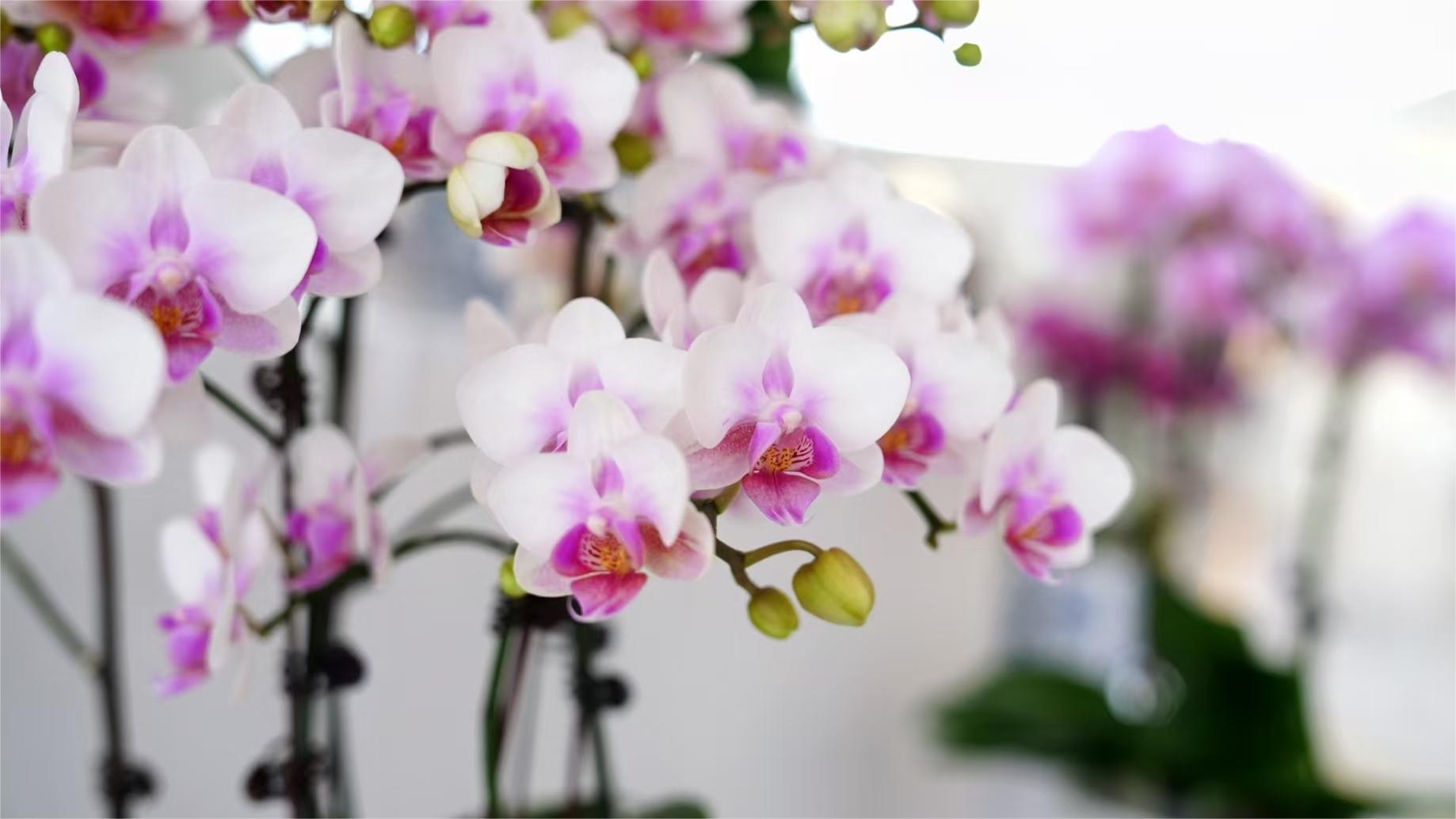Idol culture fans flames
As the excitement of the Olympics fades with the close of summer, the celebration of China's Paris heroes seems to be heating up among sports fans across the country.
Something that's become quite a hot topic.
While winning gold medals puts athletes in the spotlight, not all of that attention is welcomed. Some fans, treating them like celebrities, have become overly intrusive, prying into the athletes' private lives and attacking rival athletes online, some of whom are teammates.
While stellar performances are worth celebrating, athletes deserve peace off the field. Reasonable encouragement and constructive criticism are vital to their growth, but excessive fan worship only serves to hinder their progress and development. The consensus is that the sports world must take a firm stance and say no to "idol" culture.
The Chinese table tennis team, which dominated the Olympics by claiming every gold medal available, has, perhaps, been the most impacted by this toxic idolatry.
Beyond their success on the court, stars like Wang Chuqin, Fan Zhendong and Sun Yingsha have gained fervent fan followings, thanks to their athletic prowess, good looks, and appealing personalities. However, this intense attention has also led to increasing disruptions and public scrutiny.
On Saturday, the Chinese Table Tennis Association issued a statement expressing strong support for cybersecurity efforts to crack down on illegal activity within online fan communities, in cooperation with relevant authorities.
The association strongly condemned any unlawful behavior. It has also expressed concerns over the disruptive behavior of those online fan communities, which it says has seriously impacted the team's training and competitions. This chaos has negatively affected the lives of athletes, coaches and staff, both professionally and personally.
Since the start of the Olympics, Chinese table tennis players have been the subject of constant buzz and discussion on social media.
However, amid the praise, there has also been a wave of defamatory and hostile remarks, with some even crossing legal boundaries.
On the night of Aug 3, after the Olympics women's singles table tennis final between Team China compatriots Chen Meng and Sun, some people online posted defamatory remarks toward Chen. In the early hours of Aug 4, one user published slanderous posts targeting athletes and coaches, sparking widespread public outrage.
Beijing police quickly intervened, arresting a 29-year-old woman on Aug 6. She confessed to making the offensive posts and the case remains under investigation.
In a related announcement on Aug 15, the Ministry of Public Security outlined three other cases involving illegal behavior within sports fan circles, and emphasized that the internet is not beyond the reach of the law, urging users to refrain from spreading misinformation or engaging in personal attacks online.
In response to any online or public defamation, insults or malicious attacks against the team or its members, the Chinese Table Tennis Association pledged to pursue legal action against individuals and organizations involved.
In a statement, the Chinese table tennis team, known for its strong unity, expressed deep gratitude for the support it has received, but called for a collective effort to create a cleaner, more positive online environment.
More Attention
The Paris Olympics have catapulted athletes into the public eye like never before. Sun saw the number of her Weibo followers balloon by more than three million, while Wang gained over two million followers on Douyin within six days of the competition.
Fan, after his men's team victory, posted a reflective message on Weibo — "From Paris to Paris, 11 years of international competition, like the 11 points in a match, from beginning to end" — earning 1.18 million likes.
Yet, Olympic champions are pushing back against the feverish idol culture surrounding them. On Aug 12, swimmer Pan Zhanle, who won gold in the men's 100-meter freestyle and set a new world record, disbanded his sole online fan group, opting to distance himself from the frenzy.
In an interview with China's national broadcaster, CCTV, Pan commented on his sudden fame: "I prefer to stay low-profile and quiet. Honestly, I wouldn't mind if my performance had been less exceptional, if it meant I could return to training in peace."
Pan also addressed the growing fan attention: "When I wasn't doing well, no one came to find me. Now that I'm succeeding, they're seeking me out — it's uncomfortable."
It's not just online, either. In the arena, at the gripping all-China women's singles table tennis final between Chen and Sun in Paris, what should have been a showcase of athletic excellence was marred by unruly spectator behavior.
Chen, in particular, faced jeers whenever she scored, a display that angered many who felt that fan support had taken an unsportsmanlike turn.
Despite the charged atmosphere, the competition ended on a note of grace, as the pair shared a lengthy embrace at the conclusion of their match. Chen later described the encounter as a "match without losers", and thanked the audience for their support of both players.
Sun echoed those sentiments on Weibo: "Congratulations to sister Meng on defending her Olympic singles title. Your hard work and performance are something to aspire to.
"It was an honor to stand alongside you as we defended the honor of Chinese women's table tennis. I also urge everyone to approach wins and losses rationally, and to continue supporting our team," Sun wrote.
Fan, who won gold in both the men's singles and team events at the Olympics, has addressed toxic elements of the fanbase on social media multiple times. He has clarified his stance on interactions with fans, urging them to avoid excessive behavior.
Fan expressed strong opposition to the intrusion of obsessive fandom into sports, and emphasized his commitment to focusing on his game. He called on fans to respect his coaches and teammates and refrain from organized support activities. He also stated that he does not accept gifts, preferring only handwritten letters.
"As for my personal schedule," Fan said, "I do not wish to be met at airports or followed for photos, nor will I sign autographs or take pictures in personal settings. I ask my fans to let me live as an ordinary person."
Less Fandom
At the end of 2023, a survey conducted by the China Youth Daily Social Survey Center and Questionnaire Network, involving 1,332 respondents, found that 82.4 percent believe that the intrusion of idol culture into sports has worsened recently.
In response, the General Administration of Sport of China issued a statement on May 15, denouncing the encroachment of such distorted fan support into sports. The Chinese Olympic Committee has similarly called for respect for athletes' personal rights, and urged fans to engage in rational behavior, condemning the spread of idol culture into the sporting realm.
During the Paris Olympics, the International Olympic Committee implemented an AI-driven monitoring system to track thousands of accounts across major social media platforms in over 35 languages, aiming to shield athletes and officials from online abuse.
Youth culture scholar Ding Hui told The Paper that at the core of this behavior is the admiration of strength and success. In sports, an athlete's performance directly influences fan support, creating a dynamic similar to that of entertainment idols.
Ding noted that idol culture has been influential in China for nearly a decade. Fans not only celebrate their idols, but also justify their admiration, striving to enhance their idols' public image.
A significant aspect of this culture is fans actively removing negative comments about their idols on social media and engaging in online disputes with fans of other celebrities to shape their idol's image, according to Ding.
"The effort of fans to uphold their idol's 'public image' contributes to the spread of this culture," Ding said, adding that this focus on athletes, rather than the sports themselves, is characteristic of idol culture.
To address the intrusion of idol culture, Ding suggested that athletes should directly address and reject inappropriate fan behavior.
Athletes are distinct from media celebrities; they let their achievements on the field speak for themselves. For fans, the most meaningful interactions with athletes happen only at the competition venue.
Photos
Related Stories
- Sports enthusiasts embrace desert fun games in NW China's Ningxia
- Woman handles hydrofoil surfboard with ease
- Immersive tech wows sports fans
- Chinese badminton player, 17, dies during event in Indonesia
- Feature: Ten years on, football dream keeps flourishing on Loess Plateau
- Feature: Rejuvenating a "Rust Belt" city of China through sports
Copyright © 2024 People's Daily Online. All Rights Reserved.









